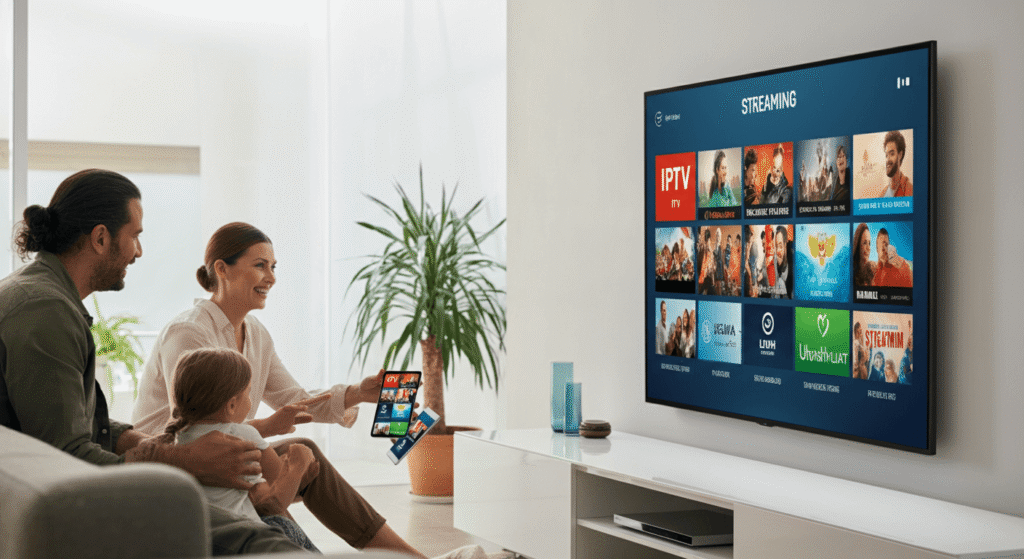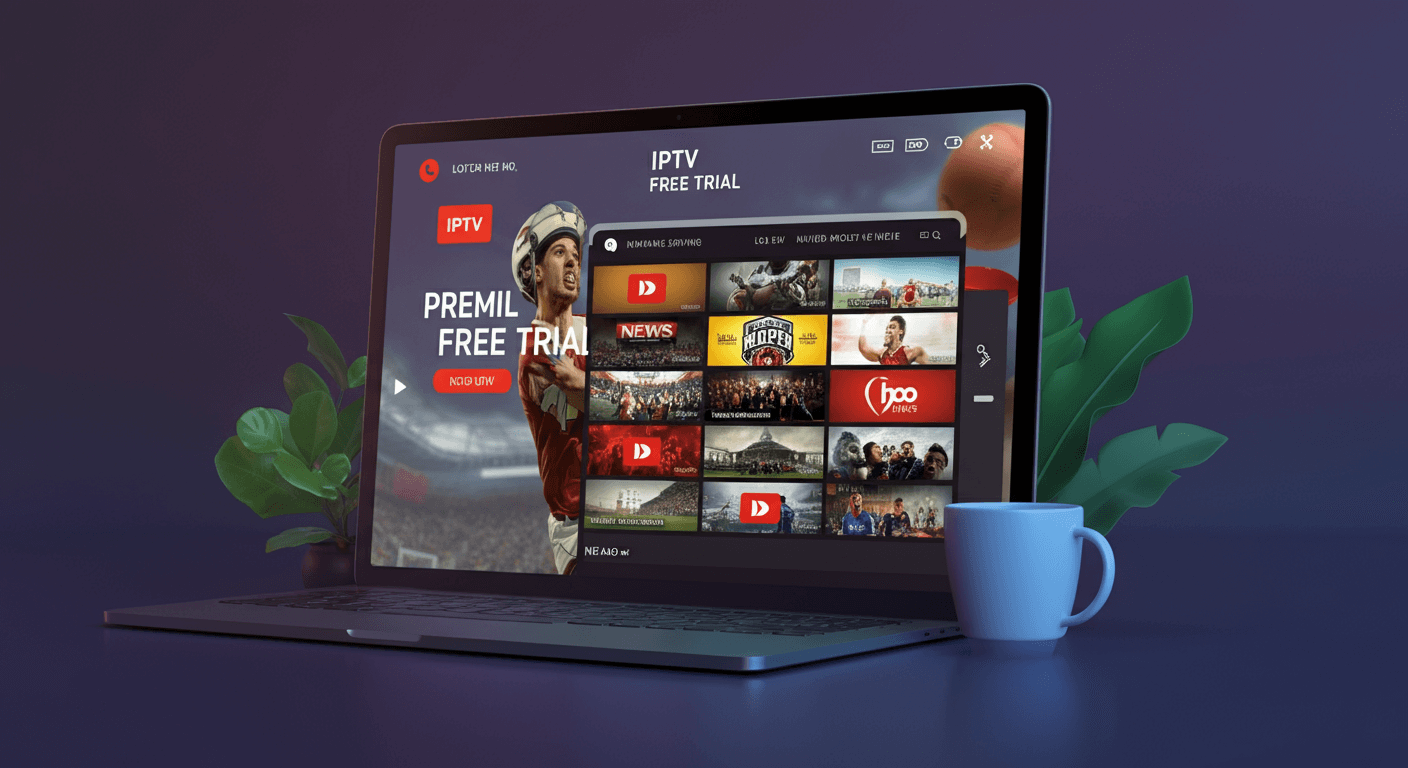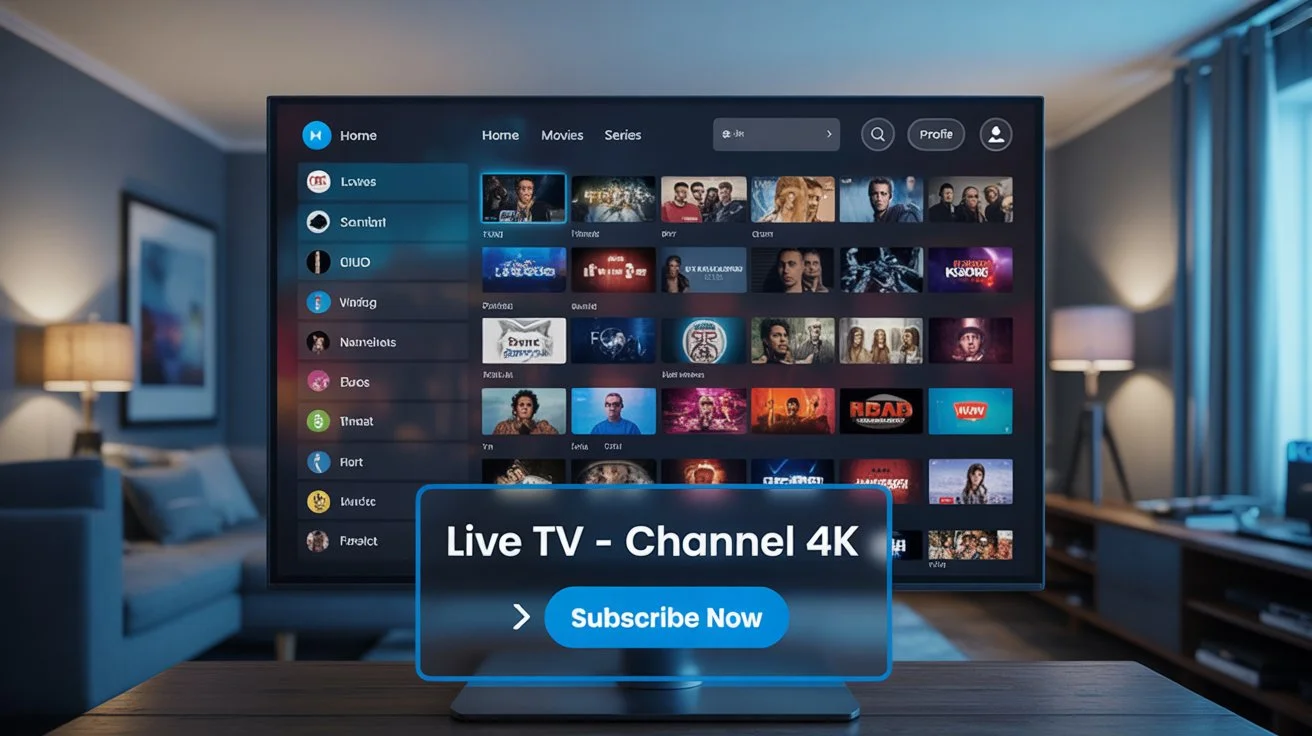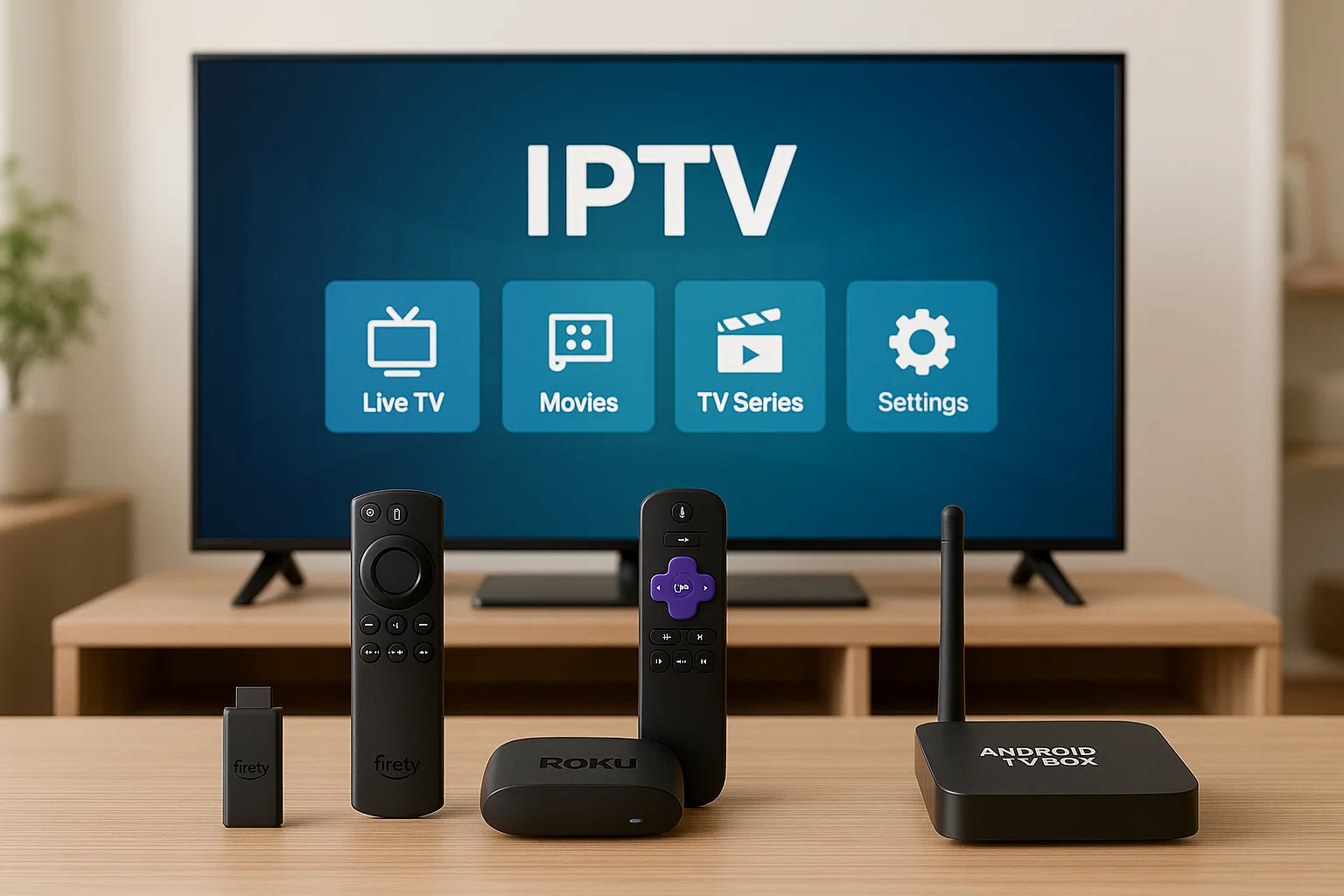In today’s digital age, IPTV (Internet Protocol Television) is rapidly replacing traditional cable and satellite television. IPTV allows users to stream live TV, on-demand shows, and movies directly over the internet, offering more flexibility and customization. However, before subscribing to an IPTV service, it’s crucial to perform an IPTV test to ensure the service meets your expectations in terms of quality, stability, and performance. This comprehensive guide will walk you through the process of testing IPTV services, troubleshooting common issues, and optimizing your viewing experience for the best performance.
What is IPTV Testing?
IPTV testing refers to the process of evaluating an IPTV service’s performance, stability, and overall quality. It involves assessing various components like internet speed, device compatibility, streaming quality, and service reliability. IPTV tests are essential for ensuring that your chosen service provides a smooth and enjoyable experience without interruptions, buffering, or poor picture quality.
The Need for IPTV Testing
Testing your IPTV service is important for the following reasons:
- Reliable Performance: To make sure that your service provides smooth playback without freezing, buffering, or poor resolution.
- Quality Assurance: IPTV providers may offer different streaming qualities (SD, HD, 4K). Testing allows you to confirm that your service delivers the desired resolution and performance.
- Identifying Issues Early: It helps detect potential problems like slow loading times, lag, or channel interruptions before they disrupt your viewing experience.
- Compatibility Checks: Ensuring that the IPTV service works well with your device, whether it’s a smart TV, smartphone, tablet, or computer.

Why You Should Test Your IPTV Service
Testing your IPTV service (Iptv Test) can prevent many common problems and save you frustration later on. Here are the key reasons why an IPTV test is important:
- Prevent Buffering Issues: A reliable test can highlight slow loading times or buffering issues that may occur with your internet connection or IPTV provider’s servers.
- Verify Streaming Quality: Different providers offer different streaming quality, ranging from SD to 4K. Testing helps ensure that the video quality matches your expectations.
- Check for Service Downtime: Testing will alert you to any server downtime or interruptions in service, which can help you avoid subscribing to a service that frequently experiences outages.
- Free Trials for Testing: Many IPTV providers offer free trials, which allow you to test the service before committing. These trials are ideal for checking streaming quality, channel availability, and device compatibility.
How to Conduct an IPTV Test
Performing a thorough IPTV test requires testing various elements of the service to ensure a seamless experience. Below are the steps to test your IPTV service:
Step 1: Test Your Internet Speed
A fast and stable internet connection is the foundation of IPTV streaming. Without sufficient bandwidth, even the best IPTV service will be plagued with buffering and poor video quality. Here’s how to check if your internet connection is up to par:
- Test Your Download Speed: Use online speed testing tools such as Speedtest by Ookla or Fast.com to measure your download speed. For SD streaming, 3-5 Mbps is sufficient, while for HD streaming, you need a minimum of 5 Mbps. To stream 4K content, aim for 25 Mbps or higher.
- Check Upload Speed and Latency: Upload speed isn’t as crucial as download speed, but it still plays a role, especially for services requiring two-way communication like video calls or live streaming. A latency (ping) below 50ms is ideal for smooth streaming.
A stable connection with the right speeds will ensure an uninterrupted streaming experience.
Step 2: Test IPTV Channel Streaming
After verifying your internet connection, you should test the actual streaming quality of IPTV channels. Here’s how to evaluate the performance of the IPTV channels (Iptv Test):
- Test Channel Loading Speed: When you select a channel, it should load within a few seconds. If a channel takes longer to load, or buffers constantly, the service may be experiencing issues on the provider’s side.
- Check for Stream Interruptions: Watch channels for an extended period (15-30 minutes) and check for buffering or freezing. If you experience frequent interruptions or pixelated images, there may be an issue with your internet speed or the IPTV service.
- Verify Audio and Video Sync: Sometimes, the audio and video can go out of sync during playback. If this happens, it’s a sign of performance problems with the IPTV stream. A high-quality IPTV service should have perfectly synchronized audio and video.
Step 3: Test Device Compatibility
IPTV services can be accessed on a wide range of devices, from smart TVs to mobile phones and tablets. However, not all devices are compatible with every IPTV service. It’s essential to test your devices to ensure a smooth experience:
- Ensure Compatibility with Your Device: Before starting, check if your device supports the IPTV app or service. Some older devices may struggle to handle high-definition or 4K content.
- Check Device Performance: If you’re using a PC or mobile device, ensure there are no background processes or apps consuming too much processing power or bandwidth, as this can lead to slow streaming or interruptions.
Step 4: Test for Buffering and Lag
Buffering and lag are the most common frustrations for IPTV users. To properly assess the performance of the IPTV service, it’s essential to test for these issues:
- Watch for Buffering: Play a video for at least 30 minutes. If the video pauses for extended periods to buffer or stutters during playback, it’s a sign of an unstable internet connection or service issue.
- Test Pause/Play Functionality: Pause the stream and then play it again. If the video takes a long time to resume or if it lags when you restart the stream, it could point to issues with the IPTV service or your connection.
Step 5: Check Service Reliability
Reliability is critical to an enjoyable IPTV experience. To assess the service’s long-term stability, consider these steps:
- Long-Term Testing: Leave the service running for several hours or even a day to test its stability. Frequent interruptions or downtime during this period indicate unreliable service.
- Server Downtime: Check online forums, service status pages, or contact the IPTV provider to see if there are any ongoing issues with their servers.
Troubleshooting Common IPTV Issues

Sometimes, problems arise even after conducting an IPTV test. Here are some common issues and how to fix them:
1. Buffering and Lag
- Solution: If your connection is slow, try lowering the stream quality (e.g., switch from 4K to HD). You can also pause the stream for a few minutes to allow it to buffer. Upgrading your internet plan or switching to a wired connection may also help.
2. Poor Video Quality
- Solution: Poor video quality could be due to a slow internet connection or an incompatible device. Check your internet speed and ensure your device supports high-definition or 4K streaming.
3. Audio and Video Sync Issues
- Solution: Restart the IPTV app or service to resolve sync issues. If this doesn’t work, check if your device’s audio settings are configured correctly.
4. Channels Not Loading or Crashing
- Solution: Try restarting the IPTV app or switching to another channel. If issues persist, contact the IPTV provider to report a server-side issue.
Optimizing Your IPTV Experience
Once you’ve tested your IPTV service, there are several ways to optimize it for better performance:
1. Use a Wired Connection
Wi-Fi is convenient but may be prone to interference, especially in areas with a lot of network traffic. Using an Ethernet cable for a wired connection will provide a more stable and faster connection, leading to smoother streaming.
2. Limit Background Applications
Running multiple applications can affect streaming quality. Ensure that no unnecessary programs are consuming bandwidth or processing power, especially when using a PC or mobile device for IPTV.
3. Upgrade Your Equipment
Outdated routers, set-top boxes, or streaming devices can cause performance issues. Consider upgrading to newer models that support the latest streaming standards, including 4K resolution and high-speed data transfer.
4. Test Free Trials
Many IPTV providers offer free trials (Iptv Test) or limited-time access to test their service. This is an excellent opportunity to assess video quality, channel availability, and overall performance before committing to a subscription. Be sure to take advantage of these trials to test the service under real-world conditions.
5. Choose a Reliable IPTV Provider
If you’re considering switching IPTV providers, do thorough research. Look for providers with a solid reputation, high-quality streaming options, good customer support, and positive reviews. The best IPTV providers offer fast speeds, a wide selection of channels, and reliable service.
Conclusion
Testing your IPTV (Iptv Test) service is a vital step in ensuring that your streaming experience is seamless, reliable, and enjoyable. By following the steps outlined in this guide, you can identify potential issues early, troubleshoot effectively, and optimize your IPTV setup for the best possible performance. With the rise of free trials, there’s no reason not to thoroughly test a service before committing. Make sure you evaluate the quality, compatibility, and reliability of the IPTV provider to ensure that your entertainment experience is top-notch.
FAQs
- How do I know if my internet speed is sufficient for IPTV?
Use speed testing tools like Speedtest by Ookla to check if your internet speed meets the minimum requirements for the desired streaming quality (SD, HD, or 4K). - Which devices are compatible with IPTV services?
Smart TVs, PCs, tablets, smartphones, and set-top boxes like Roku or Amazon Fire TV work well for IPTV streaming. - What should I do if I experience buffering during IPTV streaming?
You can try reducing the streaming quality, pausing the stream for a few minutes to buffer, or upgrading to a faster internet connection. - Why does the video quality look poor on IPTV?
Poor video quality is typically due to slow internet speeds, an incompatible device, or settings that are not optimized for high-definition streaming. - Can I use mobile data for IPTV streaming?
Yes, but ensure you have enough data and a stable connection. Streaming high-quality content on mobile data may consume large amounts of data.



